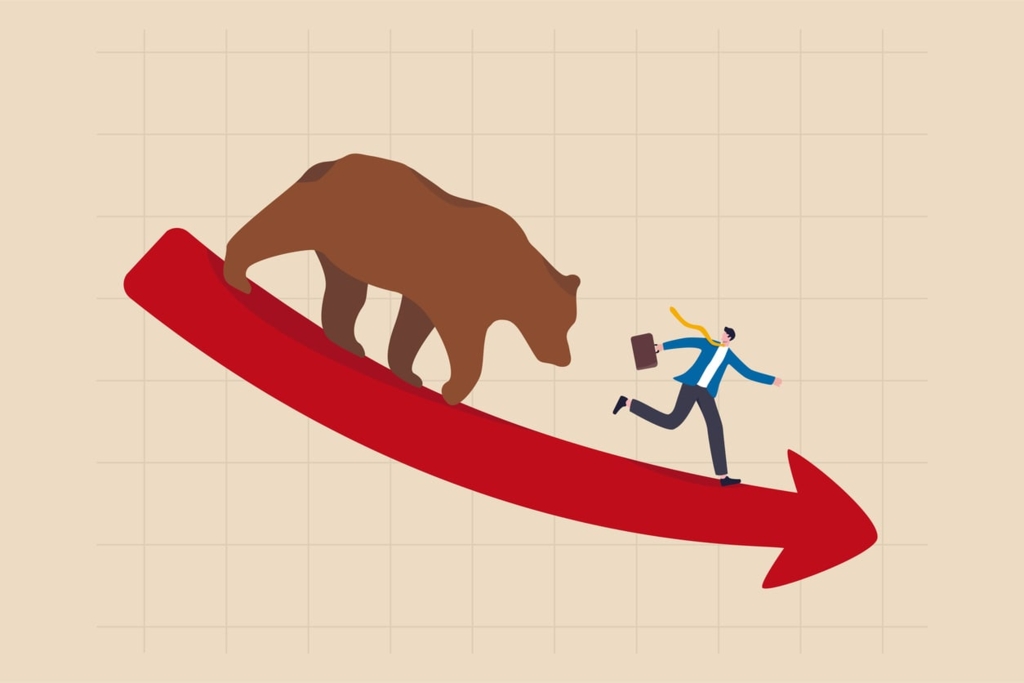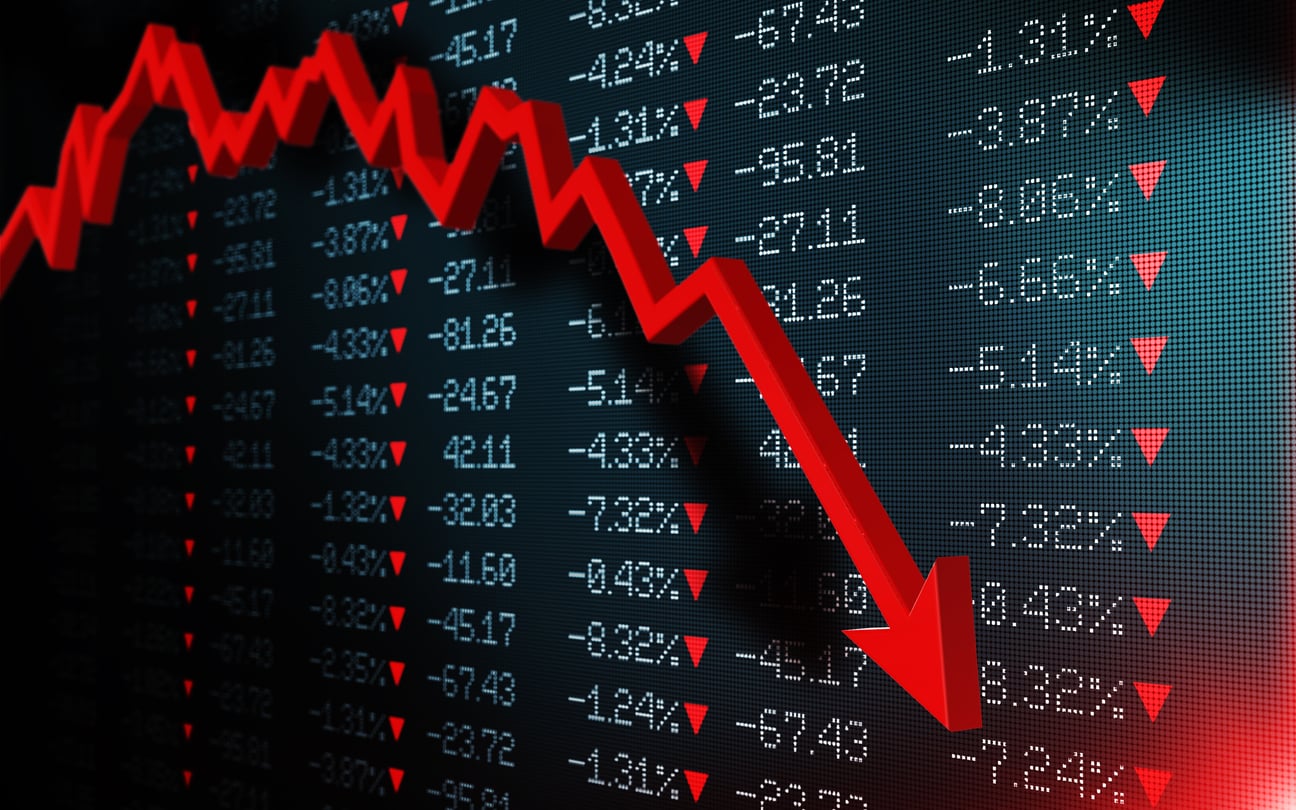Signs We're in a Bear Market: How to Tell and What to Do

It seems like everywhere you look, someone is talking about the stock market. Whether it’s on the news, on social media, or in conversation with friends and family, everyone has an opinion about where the market is headed. So what does it mean when we say that we’re in a “bear market?” And more importantly, what should you do if you think we are? In this blog post, we will discuss the signs that indicate that we are in a bear market and what actions you can take to protect your investments.
Stock Market Decline
While there are many different factors that can contribute to a bear market, one of the most common is a decline in the stock market. This can be caused by a number of factors, including a decrease in consumer confidence or an increase in interest rates. When the stock market declines, it often signals that investors are becoming more risk-averse, which can lead to further declines in the market. In addition, a bear market can also have a ripple effect on the economy, as it often leads to decreased spending and investment. As a result, a bear market can be a very difficult time for the economy as a whole.

Overly Optimistic Investors
Investors are often lauded for their optimism. After all, it takes a certain level of faith to believe that a company will be successful enough to profit from. However, there are times when optimism can go too far. When investors become overly optimistic, it can be a sign that a bear market is on the horizon. This is because investors are more likely to take risks when they believe that the market is going to continue to rise. As a result, they may pour money into companies that are actually quite unstable, setting themselves up for big losses when the market finally does turn downward. So, while a healthy dose of optimism is essential for success in the investment world, too much optimism can be a dangerous thing.

Layoffs
Layoffs are often seen as a sign that a bear market is on the horizon. After all, when companies start to trim their workforce, it's usually a sign that they're expecting tough times ahead. And while layoffs can certainly be a leading indicator of a bear market, they're not always a sure thing. Sometimes layoffs are simply the result of company restructuring or other factors that have nothing to do with the overall economy. So while layoffs can be a red flag, it's important to look at the bigger picture before making any decisions.

Declining Company Earnings
One of the most reliable indicators of a bear market is declining company earnings. When businesses are struggling to make money, it is usually a sign that the economy is weak and that stock prices are about to start falling. For this reason, analysts closely watch earnings reports for signs of trouble. If earnings start to decline, it is often a good idea to sell stocks and move into more defensive investments. While there may be some short-term fluctuations, over the long run, company earnings are a good indicator of how the stock market is likely to perform.

Political Issues
There are a number of political issues that can be a sign of bear market conditions. One is when there is a lot of uncertainty surrounding an election, as this can lead to investors becoming nervous about the future and selling off their stocks. Another issue that can signal a bear market is when there is tension between different factions within a country, as this can again make investors jittery about the future and prompt them to sell. Finally, bear markets can sometimes be triggered by international events such as wars or terrorist attacks, as these tend to make people feel less confident about the future and more likely to sell their stocks. So if you see any of these political issues starting to crop up, it could be a sign that a bear market is on the horizon.

What To Do About It?
Think About a High-Yield Savings Account
When the stock market starts to head downward in a bear market, some investors may start to pull their money out of stocks and move it into cash. However, keeping your money in a traditional savings account may not be the best idea. Interest rates on savings accounts are often very low, which means that your money will not be able to keep up with inflation. As a result, your savings will actually lose value over time. A high-yield savings account is a much better option for bear market conditions. These accounts typically offer interest rates that are significantly higher than traditional savings accounts, which means that your money will be able to grow even when the stock market is down. Before making any decisions about where to invest your money, it's important to talk to a financial advisor to get more information about bear markets and high-yield savings accounts.
Look Into Index Funds
One of the smartest things you can do with your money is to invest in index funds. This is especially true when bear markets happen. Bear markets are defined as a 20% drop in stock prices from their peak. They happen about once every 3-5 years on average. Some people get scared and sell all of their stocks when bear markets happen. But if you're smart, you'll know that this is actually the best time to buystocks. That's because when bear markets happen, stock prices are usually at their lowest point. So if you buy stocks during a bear market, you're more likely to make a profit when the market rebound happens. Index funds are a great way to invest in stocks because they offer diversification and they're relatively low-risk. So if you're looking to make money moves during a bear market, index funds should be at the top of your list.
Consider Staying in Stocks
While bear markets can be scary, there are some advantages to staying in stocks during these times. For one, bear markets provide an opportunity to buy stocks at a discount. If you have cash on hand, you can purchase shares of stock at a lower price than you would during a bull market. Additionally, bear markets tend to be shorter than bull markets, so the overall damage to your portfolio may not be as severe. Finally, bear markets typically occur in cycles, so there will likely be another bull market around the corner. For all these reasons, it's worth considering staying in stocks during a bear market.



